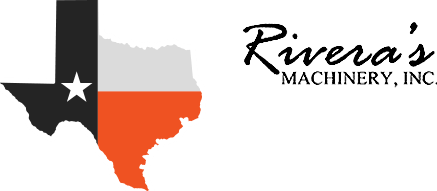Reducing & Optimizing Water Use On Your Farm
 Agriculture in the United States uses up a staggering 80% of our country’s total water consumption. This water is used in a great many ways, from the application of pesticides to hydrating livestock and irrigating crops. And now, more than ever, it’s important to get as much as possible out of this precious natural resource. Droughts have become an increasing issue, which is a problem for every farmer because groundwater sources often aren’t enough without sufficient rain to replenish them.
Agriculture in the United States uses up a staggering 80% of our country’s total water consumption. This water is used in a great many ways, from the application of pesticides to hydrating livestock and irrigating crops. And now, more than ever, it’s important to get as much as possible out of this precious natural resource. Droughts have become an increasing issue, which is a problem for every farmer because groundwater sources often aren’t enough without sufficient rain to replenish them.
Given how much water farming uses, there are several reasons why it’s best to reduce water usage wherever you can. By optimizing how you irrigate, you can save money and reduce your farm’s impact on the environment.
With the right agriculture equipment courtesy of your friends here at Rivera's Machinery, Inc. in Donna, Texas, you can get more out of your farm. And by following the tips below, you can squeeze the most out of every drop of water you use while reducing how much you use at the same time!
Understand Your Water Sources
First, it’s important to recognize where your water comes from. It’s wise to figure out which sources are the most cost-effective for you, in addition to being the most sustainable. Here are the most common sources for agricultural water:
- Surface Water: freely available; found in irrigation ditches, creeks, canals, rivers and reservoirs. Costs nothing to use, but is limited in its supply, particularly during the dry season.
- Groundwater: any water that collects beneath the Earth’s surface in an aquifer, which is a water-bearing layer of rock and sediment. The zone of saturation is the area where water collects, and the upper level of that zone is commonly referred to as the water table. Obtained via wells, groundwater is replenished slowly over time and it’s easy to deplete if you’re not careful about water stewardship.
- Rainwater: freely available, depending on the climate. Some regions of the country have plenty of rainfall to assist them with irrigating their farms, but others, like Texas, have much less to rely upon. Many farmers build cisterns or ponds in order to catch rainwater whenever they can for later use. Even small amounts of rainwater can be useful for filling watering troughs or cleaning on your farm.
- Municipal water: available at some cost to you via city supply lines. Best used within the farmhouse rather than as a primary source of agricultural water, chiefly due to its expense.
Water Use Strategies
You’ll need to plan carefully in order to reduce your farm’s total water usage. We’ve outlined a few different strategies below that you should use in conjunction with one another to get the most you can out of a limited supply of water:
- Use drip irrigation: these systems direct water to the roots of plants rather than relying on a spray to cover the field. If used correctly, crop water usage can drop by up to 80%, and yields can increase with more carefully applied water since it’s going exactly where it needs to be.
- Schedule around rainfall: monitoring the weather and the soil moisture in your region carefully allows you to take maximum advantage of the rain when it does come.
- Plant drought-tolerant crops: choosing crops like legumes, pomegranates, sorghum and millet means that you’ll be able to get higher yields with less water. You can also plant crops that require whatever moisture is already in the soil, which is called dry farming.
- Go organic: increase your total yields by up to 30% by removing pesticides (a common drain on agricultural water supplies) from the equation and making use of the moisture and bacteria in the soil to keep crops healthy. This strategy can help you to recharge your groundwater while also removing noxious pollutants from it.
Implementing some or all of these strategies should help you to cut down your agricultural water usage significantly. You’ll see improved crop yields in addition to keeping more money in your wallet! Come see us at our location in Donna today to take a tour of our selection of new and used farm equipment for sale. Our staff can answer any questions you may have and direct you to agriculture equipment that will best suit your needs. Rivera’s Machinery, Inc. proudly serves the cities of Harlingen and San Benito, Texas.

